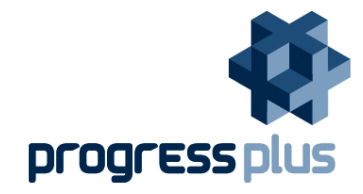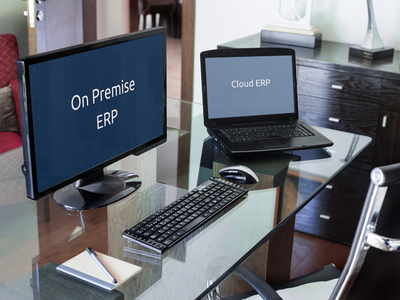 Cloud ERP and On-Premise ERP
Cloud ERP and On-Premise ERP
The cloud ERP versus on premise ERP debate has been going on for a while now, and in as much as different people have different preferences, neither side really appears to be winning this argument.
The argument of cloud versus on premise cannot be approached from one single dimension. There are so many issues to be explored here. Approaching the debate from one perspective is like judging a book by its cover. For instance, you cannot simply dismiss on-premise storage because of its price and forget to analyse the benefits of its secure nature. In the same way, one reason is not enough to convince you to forego cloud – you have to explore it all, and with an open mind too.
The main issue is businesses are told to see it as cloud or on-premise but that is not the case – you can have the best of both. The question shouldn’t be cloud or on-premise, it should be what is the best ERP solution?
There are several benefits to storing data in the cloud, but there are also benefits to storing the same data in an on premise location.
Many users today have resorted to the hybrid approach where they keep some information stored on the cloud, and then some other information they keep stored on premise.
With Berkeley Myles Solutions, they can host the ProgressPlus database on-premise or in the cloud. ProgressPlus don’t force you and they don’t feel it is one against the other.
Difference with Pricing Models
Lots of companies choose cloud manufacturing software because they perceive that the lower monthly subscription is more affordable but actually over time they will spend significantly more money than if they were to choose an on-premise solution.
It is important not to get deflected on pricing. Don’t let the perception of the monthly cost swither your decision, cloud pricing is not cheaper. With Cloud ERP you are always paying a fee in order to use the software. However, with on-premise, you own the license so can use the software without being required to subscribe to any mandatory costs.
Essentially, if it is the monthly pricing model that appeals then you can take finance out on the software. The difference is finance has an end date.
An ERP solution should be looked at as a long-term investment and not a temporary fix. Berkeley Myles Solutions have customers that have been using our software for over 20 years and, if they had rented the software, these customers would have paid for the system 10 times over. In truth the cloud pricing model suits the vendor rather than the users.
ERP Training and Implementation
There are various hidden costs that all need to be considered with the majority of ERP software vendors making it compulsory to pay large upfront training costs.
With an ERP solution implementation and training is fundamental. This is the only way your business will benefit from having it.
Every business is unique and that is why your training and implementation plan should be unique. As this is a critical business system you must have quality training.
Some vendors will provide their training courses in a one size fits all approach. The courses are provided in a classroom environment, as an online webinar or you have to travel to a training centre.
Berkeley Myles Solutions offer a bespoke training and implementation plan delivered on the customer’s site. Additionally, ProgressPlus maintenance covers all support (phone, remote control & onsite if necessary) rather than just email support – typical of a Cloud ERP Offering.
Another unexpected cost is if you have software that is complex and effective support is not provided – will you need to hire an IT Systems person so that any problems you have are directly addressed and solved in time?
Where is the system hosted?
On premise solutions are hosted locally. This means that you have to invest in new hardware and software that you will own. As per the name, cloud ERP is hosted on the cloud. It does not need any hardware to function, just a stable internet connection and the appropriate software.
By hosting on premise, you are more secure and if you have stringent backup procedures you will minimise risk even more. With the cloud you will be hosted with Amazon Web Services data centre or equivalent.
Most businesses will take a hybrid approach. Think about something as simple as email. It simply does not make sense to host this locally because of cost and uptime reasons.
Conclusion
It all starts with a simple question – to the cloud, or not to the cloud? This is a question that will determine the security of your data and the price that you have to pay for that security. The IT industry is glorifying cloud storage for its convenient and costly nature, but dig a little deeper and you will see the cloud is not all that it is cut out to be.
The cloud ERP versus on premise ERP debate does not show any signs of coming to an end soon, and as all the major cloud service providers continue to throw numbers around to create a perception of convenience and cost efficiency, it is up to you to look through the charade and pick a plan that suits both your needs and your pockets.
So many people focus on the current trends on face value costs such that they end up losing site of the bigger picture all together – the total cost of ownership.


 Cloud ERP and On-Premise ERP
Cloud ERP and On-Premise ERP